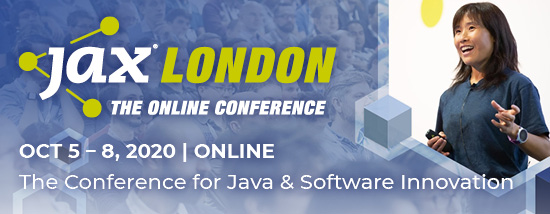A research study by The National Center for Women & Information Technology showed that “gender diversity has specific benefits in technology settings,” which could explain why tech companies have started to invest in initiatives that aim to boost the number of female applicants, recruit them in a more effective way, retain them for longer, and give them the opportunity to advance. But is it enough?
Three years ago, we launched a diversity series aimed at bringing the most inspirational and powerful women in the tech scene to your attention. Today, we’d like you to meet Alexandra Machado, head of Red Hat’s social innovation programme.
Today’s Woman in Tech: Alexandra Machado, head of Red Hat’s social innovation programme
 Alexandra Machado singlehandedly created Red Hat’s Social Innovation Programme, a separate unit within Red Hat devoted to providing pro bono work to charitable organisations. Alexandra has spent the last few years building this programme while also holding down a full time position within Red Hat’s Global Services team.
Alexandra Machado singlehandedly created Red Hat’s Social Innovation Programme, a separate unit within Red Hat devoted to providing pro bono work to charitable organisations. Alexandra has spent the last few years building this programme while also holding down a full time position within Red Hat’s Global Services team.
When did you become interested in technology?
My first contact with technology was during my teenage years when using ICQ, a cross-platform messenger. I was able to connect with friends and new people from all over the world from my computer in Margarita Island, Venezuela. From that moment on, technology for me was a means to connect to the world. It aligned with my passion for cultures, languages and getting to know more about the world. It made me feel closer to faraway places, and made it easier to connect to my family that lived abroad.
I wanted to learn more about technology and get better at using it so I could continue with my exploration of the world.
How did you end up in your career path?
My career path was decided entirely on the back of one simple question: “What career path will allow me to live and work in different places around the world?”. The answer was simple, a career in technology.
I would have loved to study anthropology or even specialise in languages but I understood very early on that technology was the new common world language and, in order to become fluent in it, I needed to learn it. It was the new connector, the new way of doing things globally and I wanted to be part of it.
Did you receive support from your family and friends? Do you have a role model?
I received a lot of support from my parents, especially because they saw technology as the way of the future so were delighted that I chose that career path. Both of my parents are electrical engineers. My mother was the first woman to graduate as an electrical engineer at the Universidad de Oriente in Venezuela. She didn’t receive a lot of support from her family, as that career path back in the 70s was not typical for women, or as my grandfather told her: “This is not a woman’s career”. She went on to graduate with honours and work in the biggest electrical company of Venezuela, where she met my father. After a couple of years, they decided to go down the entrepreneurial route, and they started their own contracting company together.
My mother was always there for us, while working hard and making things happen with her company. I can see clearly how her career influenced the way she raised me, and how being an engineer made her approach problem-solving differently from other mums. The way she dealt with problems at her own company helped us to solve other problems at home. And seeing her as a working mother has given me a lot of my confidence in my own job. She is definitely my role model, and as I get older I see more and more of her in me, especially in my working style.
Did someone ever try to stop you from learning and advancing in your professional life?
No, I have been very lucky to have the full support of my family and loved ones all throughout my professional life. However, along the way, I have received feedback or comments that are usually unsolicited and oftentimes not very constructive. I use them as a means to grow my awareness and make sure my confidence never depends on what other people think of me.
After I finished my engineering degree, I signed up for a MSc in ICT at the Universitat Politècnica de Catalunya in Barcelona, Spain. At this point, I was fluent in 4 languages and, according to some friends back home in Venezuela, I was more focused on my career than my family. My cousin told me “If you continue to add to your resume you won’t find a suitable husband because it will be too much for a man to marry you. They will feel dumb”. My cousin was also a woman with a university degree, however it became clear to me how expectations and cultural burdens are heavier for women in some cultures. This fueled my appetite for success even more, and I gained work experience in 3 countries. I then did my international MBA in Shanghai, NYC and Boston, adding 2 more languages to my toolkit along the way.
The big takeaway here is that we don’t always find support in the ways or people we expect, but we should use every experience, both positive and negative, to grow and better ourselves. To change the future and get rid of cultural burdens, expectations and beliefs, we need to continue educating, learning and setting a new example.
My mother was always there for us, while working hard and making things happen with her company. I can see clearly how her career influenced the way she raised me, and how being an engineer made her approach problem-solving differently from other mums.
A day in Alexandra’s life
My current role is Senior Manager for our Global Social Innovation Program at Red Hat. Through the program, we connect nonprofit organisations to the power of open source technology and culture to solve the world’s most pressing issues. We structure collaboration projects with key open source projects for nonprofits to get them the tools, resources and knowledge they need to build open source solutions more effectively. Every day is different and that’s what I love about my job. It requires creative thinking and a lot of collaboration across Red Hat and with our partners, so we can make some magic happen in the social innovation space and keep growing the concept and program.
My week involves exploring potential new projects, revising ongoing deliveries, checking in on the outcomes of collaborations, and also structuring new internal initiatives within our program. Spreading the word and sharing our wins and lessons is also part of the journey, so we spend a good amount of time on communications and PR.
I have led the way at Red Hat to create this program from scratch, defining what it means to do social innovation the open source way. The first goal of the program is to democratise software and make open source the standard in the nonprofit space, and the second is to set the example that cross-sector collaboration is key to building shared open source solutions that will help address big global issues.
What are you most proud of in your career?
I’d definitely have to say starting the Social Innovation Program. I was given the opportunity to take an initial idea and execute it, and watching it evolve into what it is today has been the most fulfilling experience of my career. After starting the program from scratch, it reminded me of the endless opportunities we all have when we have the right mindset, perseverance, the right support system, company culture and tools.
I am also proud and thankful for my education and all the skills I have gained throughout my career that have led me this far. My education has definitely provided me with a lot of valuable knowledge and skills that have given me the confidence to take on new challenges. Living and working abroad in 6 different countries for 10 years has also taught me how to be bold and not scared of the unknown. It put a lot of things in perspective, and showed me first-hand how different cultures and people see problems differently.
Why aren’t there more women in tech?
Just as my mother had to deal with prejudice back in the 1970s, we still have a long way to go in order to achieve true gender equality. The reason why we don’t have a lot of women working in technology is cultural. Society has always told us what we should and shouldn’t be doing as women – for example, that being an electrical engineer is not a job for women. A lot of women also have to choose between their careers and starting a family, and often leave their jobs to take care of their kids. There is not a right or a wrong path here, but more often than not, women are the ones that need to make hard choices, based on a system that historically hasn’t been supportive of women. As we start to shift paradigms, expectations and cultural beliefs, we’ll be able to overcome these challenges to build a new system where women can be both mothers and professionals simultaneously.
Could you name a few challenges (or obstacles) women in tech face?
The tech industry is dominated by men, which means it is usually an environment run by men, with fewer women in the room. I’ve seen some women in tech succeed by adapting to the status quo, rather than doing things their own way and helping to change the environment. However, this quick fix, which might work for some, is not helping improve diversity in the long term and it’s not paving the way to onboard more women.
Societal change needs to happen in order to transform a male-dominated industry into a gender-neutral one. We need to make our voices heard, we need more women in the room to inspire future generations and bring true diversity to spaces that are seriously lacking a different perspective.
The other obstacle is getting women interested in technology from an early age. By showcasing its value earlier on in life, we can get more women involved in technology, which is where STEM plays a key role.
Would our world be different if more women worked in STEM?
Yes, I believe it will make a huge difference. Having more women work in any sector or industry is what the world truly needs. Women bring a different perspective to every aspect of life, and that perspective is needed to evolve and make a change.
There are two big reasons why women should be part of big decisions that are taking place everywhere in the world. First, ideologically women add a new perspective and give a voice to often forgotten topics. Secondly, it makes sense for more women to contribute economically – being a woman in a successful career in STEM will not only help the household but also benefit economies around the world.
It makes sense for more women to contribute economically – being a woman in a successful career in STEM will not only help the household but also benefit economies around the world.
The discussion about diversity is gaining momentum. How long will it take to see results from the current debate?
I hope the need for greater diversity is no longer up for discussion and that it’s happening. Gender equality is a pressing issue and it’s not a simple task because it needs to happen without jeopardising meritocracy.
Tackling the problem starts with education, both in schools and in the workplace. Working on STEM initiatives at all levels is very important. Women also have the responsibility to set a new example for their children, instead of teaching them outdated gender stereotypes. In the workplace, induced diversity is a good strategy for hiring, as is promoting women at all levels, but most importantly in leadership positions. It’s proven to help with innovation as it brings a healthy mix of opinions and different perspectives into the mix to drive change.
What advice (and tips) would you give to women who want a tech career?
First of all, know that you are in the right place at the right time. Right now, this is the best industry to be in because everything today revolves around technology, and it’s setting the pace for all other industries. Secondly, established technology companies are usually aware of the importance of meritocracy and diversity, and how vital it is for growing their company culture and for innovation.
If you are not convinced, here is an example: if you code, your code solves an issue, and then your code gets merged. Nobody cares about gender or race in this instance; your talent will speak for itself. My advice for women coders is to get better at what they’re doing so their knowledge and talent speak for itself.
My advice to those women that are already in leadership positions is to work actively on mentoring more women, paving the way for other women, and making sure diverse opinions and perspectives are part of their teams. As I mentioned before, throughout my career I’ve met women who have adopted an old-fashioned style of leadership, instead of actively bringing about change.
My overall advice for all women in technology is to be themselves, be transparent, be open, be bold, and set the path for other women to create greater diversity. I would also give the same advice I gave to one of my direct reports that was straight out of university. I told her that you can focus on what you need and what you want, but the best way to really make an impact is to align with what your organisation, the market and the world needs, with the premise of being the change-maker with the bigger picture in mind. We could see ourselves as the connectors and integrators that are missing in the market. We shouldn’t comply or adapt anymore, we should set a different pace, bring different rules, and hopefully bring more empathy to the workplace. Be selfless, be kind, be thoughtful and don’t be afraid of being a change agent for the greater good.
More Women in Tech:
- Women in Tech: “It is essential that more women get a foothold in the tech industry”
- Women in Tech: “Sometimes, you can be your own worst enemy”
- Women in Tech: “Join meetups and other women tech groups”
- Women in Tech: “Degrees can matter but they aren’t required”
- Women in Tech: “The IT sector requires a lot of energy and will”
The post Women in Tech: “We need more women in the room to inspire future generations” appeared first on JAXenter.
Source : JAXenter


















